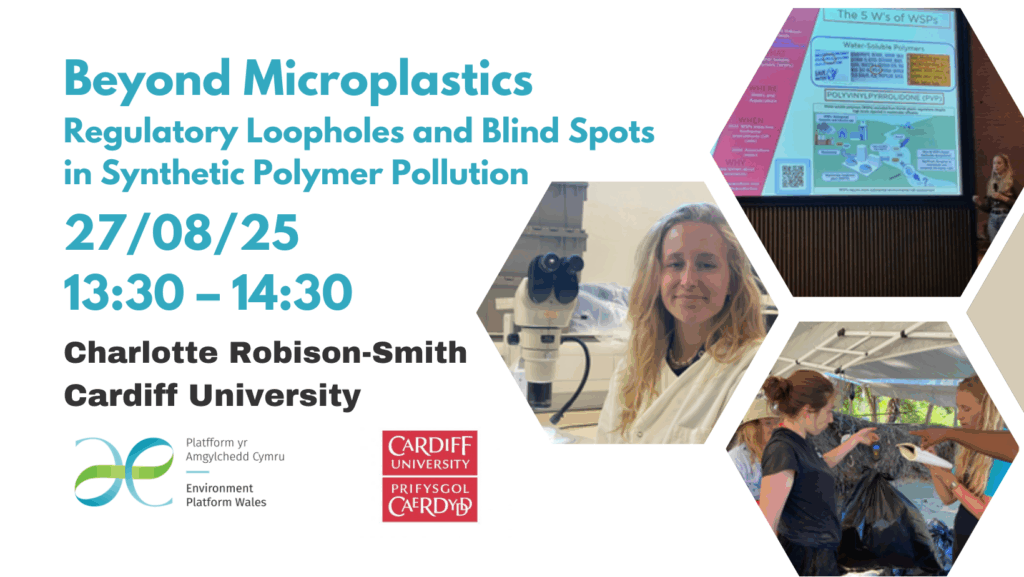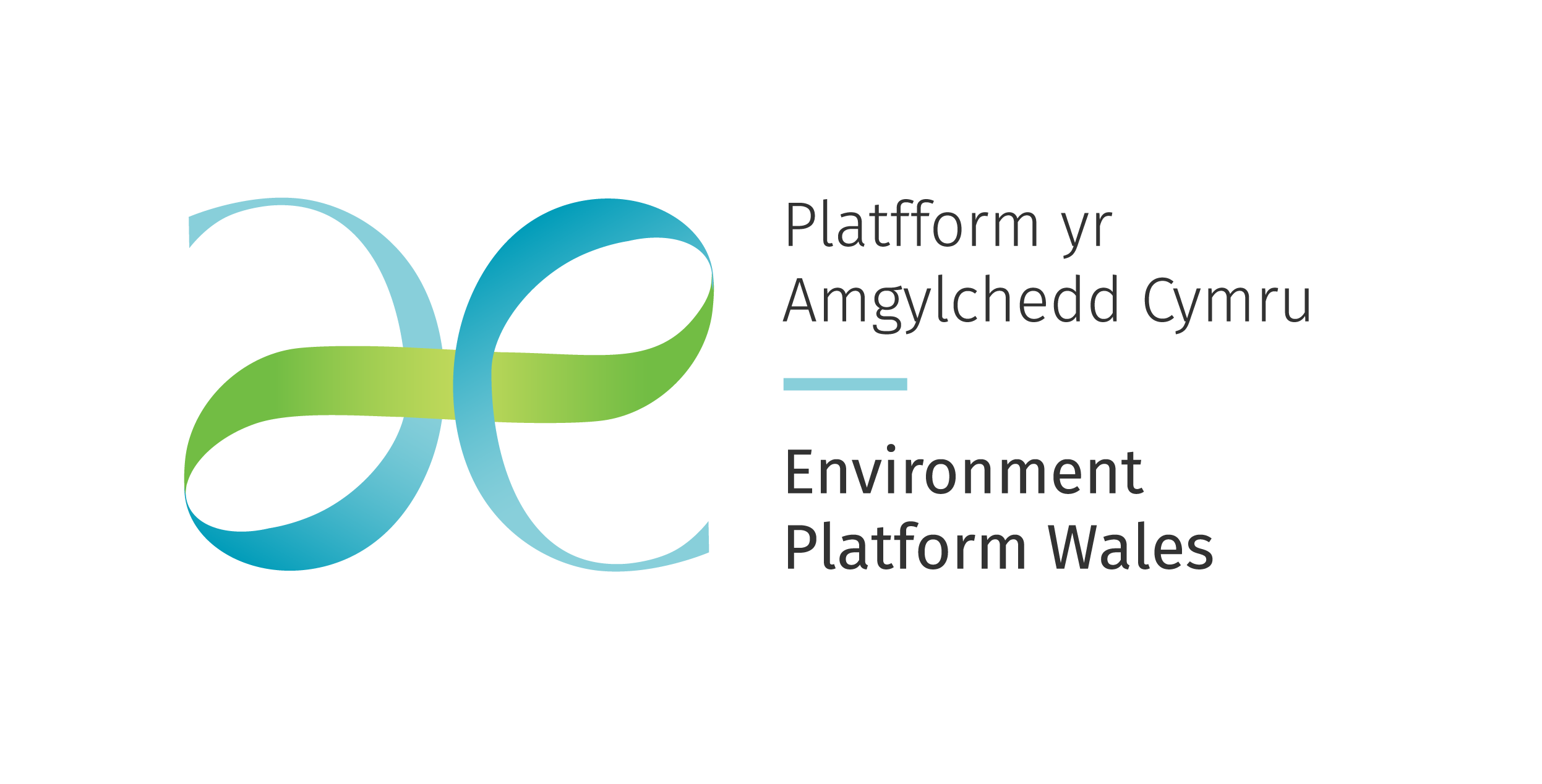2024-5 Insights Wales / Cipolwg Cymru Recordings – epwales.org.uk

Among the plastics crises plaguing aquatic environments, new regulations have emerged to combat ‘solid synthetic polymer’ pollutants—more widely known as plastic and microplastic pollution. However, do these restrictions on synthetic polymers serve their intended purpose?
This talk summarises the research of Cardiff University PhD student Charlotte Robison-Smith, whose work operates at the science-policy interface to address critical gaps and misalignments between regulations and real-world polymer pollution. Her findings reveal that some of the most prevalent polymer pollutants on remote Atlantic-exposed shorelines are substances already restricted in the region, exposing regulatory inadequacies for plastic pollution mitigation.
Current microplastic restrictions also exclude water-soluble polymer chemicals. Like conventional plastics, these substances are often synthetic, biodegradation-resistant, and widely produced, making them prevalent pollutants in aquatic environments. Charlotte’s work characterises the impacts of these overlooked polymers on aquatic fauna, particularly within aquaculture systems where they are used intensively. Working with industry partners, her research aims to evidence favourable chemical substitutions, driving chemical sustainability and advocating solutions-based ecotoxicology.
Addressing gaps in current policy, this research highlights the urgent need for comprehensive frameworks that address both visible plastic debris and invisible soluble polymer pollution, to safeguard aquatic environments from the detrimental effects of exposure to synthetic polymer chemicals.

About the Speaker
Charlotte carried her passion for Marine Biology from undergraduate to a PhD at Cardiff University, continuing to focus her expertise on aquatic pollution. As a final year PhD student in the Ecotoxicological Risk Assessment Towards Sustainable Chemical Use (ECORISC) Centre for Doctoral Training, and guided by expertise of supervisors Jo Cable, Pete Kille (biology) and Ben Ward (chemistry), she has delivered interdisciplinary published works to address key gaps in our understanding of aquatic ecotoxicity of polymer chemicals, such as plastics and synthetic water-soluble polymers. Through a placement with the Welsh Government and collaborations with Natural Resources Wales, Centre for Environment, Fisheries and Aquaculture and the Environment Agency, Charlotte’s research sits at the science-policy interface to address critical gaps in environmental chemical regulation.



